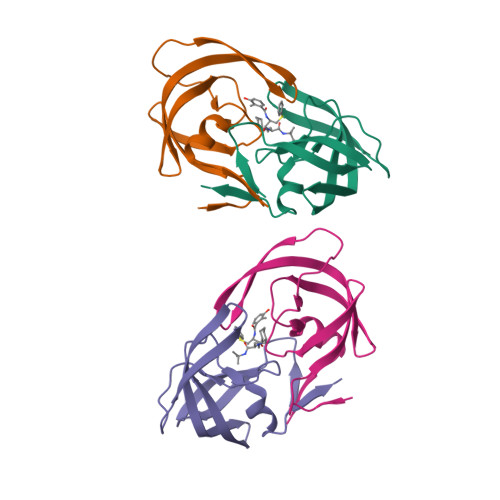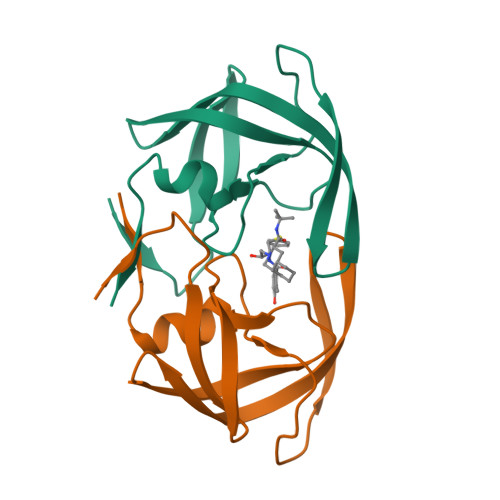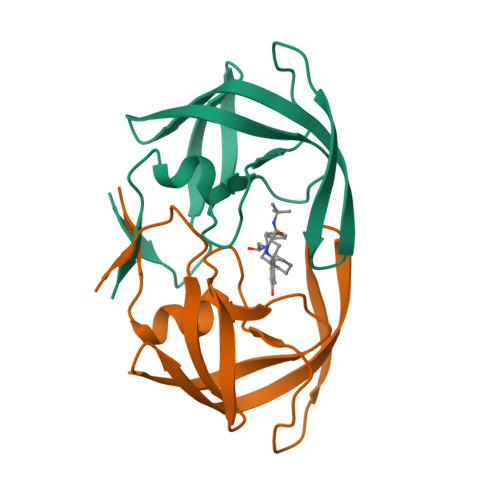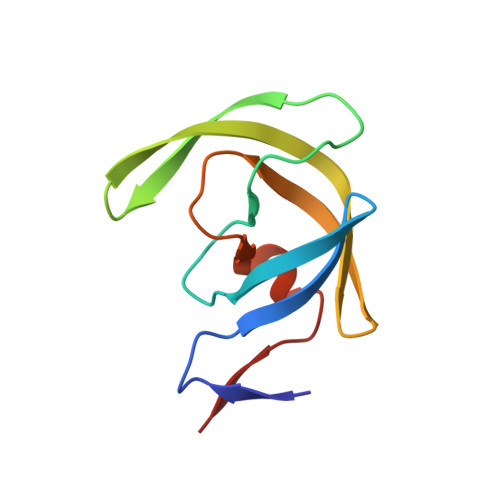The Contribution of Naturally Occurring Polymorphisms in Altering the Biochemical and Structural Characteristics of HIV-1 Subtype C Protease
Coman, R.M., Robbins, A.H., Fernandez, M.A., Gilliland, C.T., Sochet, A.A., Goodenow, M.M., McKenna, R., Dunn, B.M.(2008) Biochemistry 47: 731-743
- PubMed: 18092815
- DOI: https://doi.org/10.1021/bi7018332
- Primary Citation of Related Structures:
2R5P, 2R5Q - PubMed Abstract:
Fourteen subtype B and C protease variants have been engineered in an effort to study whether the preexistent baseline polymorphisms, by themselves or in combination with drug resistance mutations, differentially alter the biochemical and structural features of the subtype C protease when compared with those of subtype B protease. The kinetic studies performed in this work showed that the preexistent polymorphisms in subtype C protease, by themselves, do not provide for a greater level of resistance. Inhibition analysis with eight clinically used protease inhibitors revealed that the natural polymorphisms found in subtype C protease, in combination with drug resistance mutations, can influence enzymatic catalytic efficiency and inhibitor resistance. Structural analyses of the subtype C protease bound to nelfinavir and indinavir showed that these inhibitors form similar interactions with the residues in the active site of subtype B and C proteases. It also revealed that the naturally occurring polymorphisms could alter the position of the outer loops of the subtype C protease, especially the 60's loop.
Organizational Affiliation:
Department of Biochemistry and Molecular Biology, University of Florida College of Medicine, Gainesville, Florida 32610, USA


















